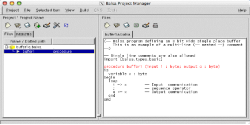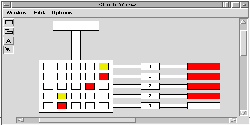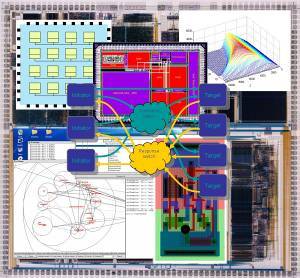
Design tool projects
The group is involved in a number of design tool projects. (Balsa, LARD, MUCS PCB)
Balsa
- Balsa

Balsa is both a framework for synthesising asynchronous (clockless) hardware systems and the language for describing such systems. The approach adopted is that of syntax-directed compilation into communicating handshaking components and closely follows the Tangram system of Philips. The advantage of this approach is that the compilation is transparent: there is a one-to-one mapping between the language constructs in the specification and the intermediate handshake circuits that are produced. It is relatively easy for an experienced user to envisage the architecture of the circuit that results from the original description. Incremental changes made at the language level result in predictable changes at the circuit implementation level. This is important if optimisations and design-tradeoffs are to be made easily and contrasts with a VHDL description in which small changes in the specification may make radical alterations to the resulting circuit.
LARD
- LARD

LARD is a hardware description language developed for describing asynchronous systems - though little is specific to that purpose, so you could use it to describe synchronous systems if you wanted, or even as a general purpose programming language.
MUCS PCB
- MUCS PCB

The MUCS-PCB software was developed between 1985 and 1992 as part of a research project exploring PCB routing algorithms. The package is aimed at producing multilayer (2-16 layer) digital PCBs and was used for a number of years for routing boards designed in the department of computer science for production at our local PCB fab.

